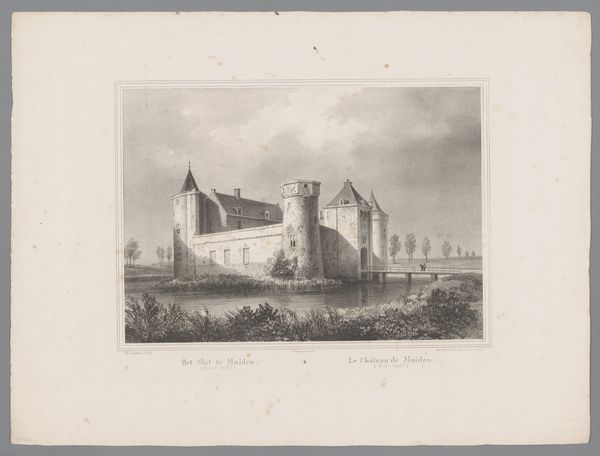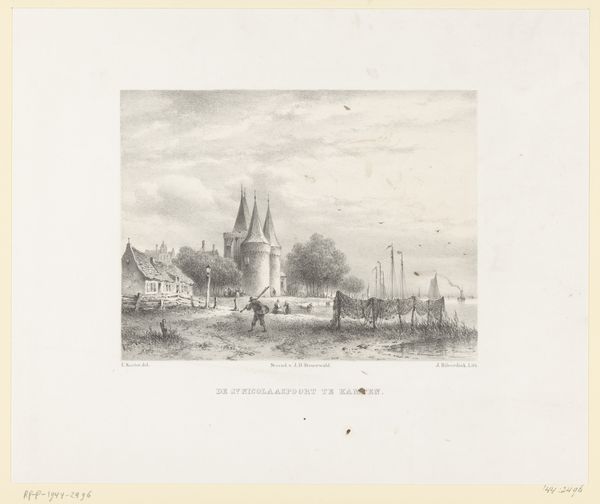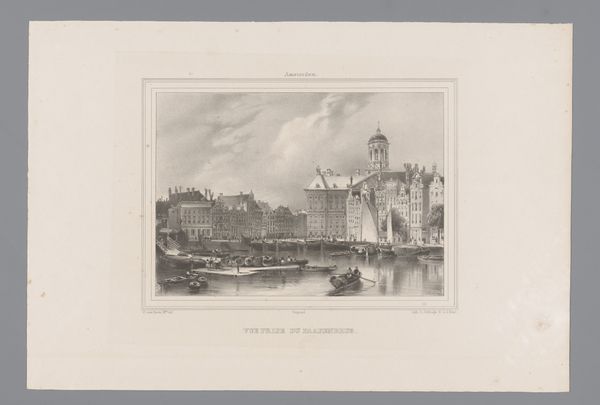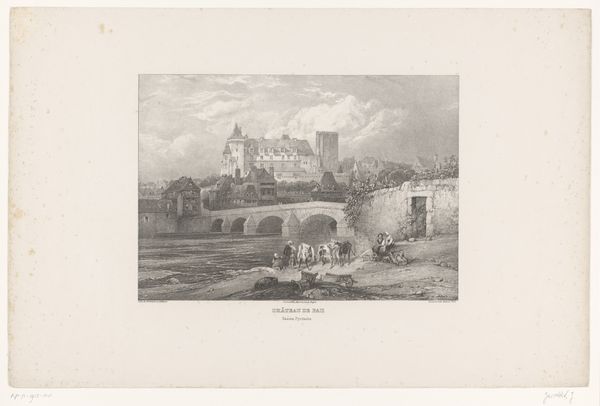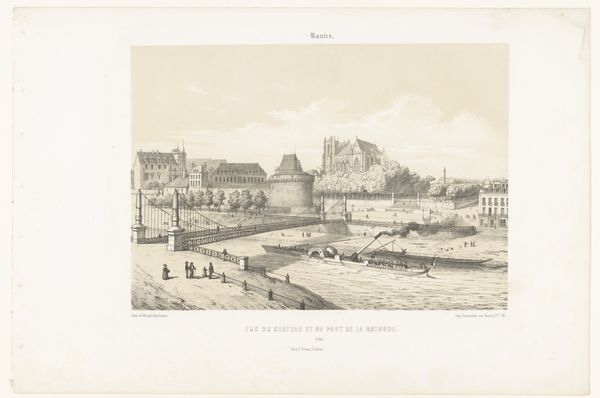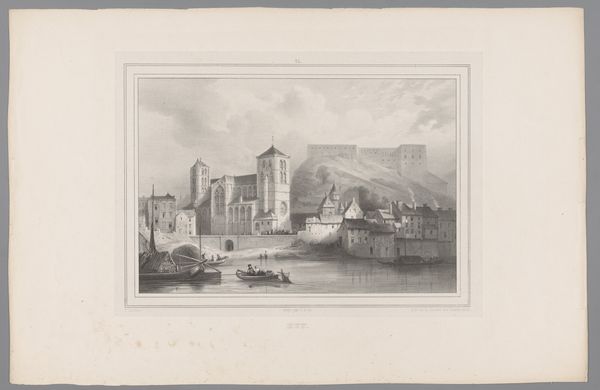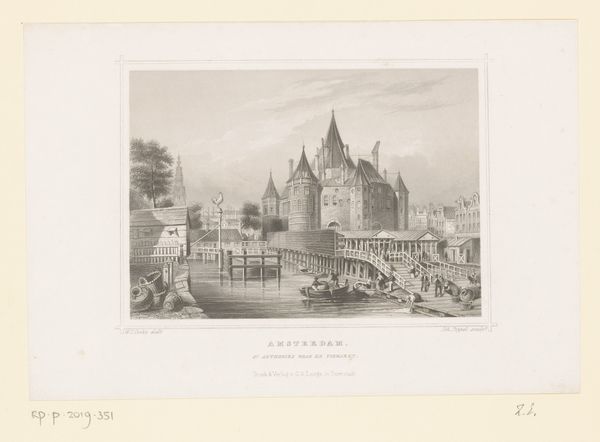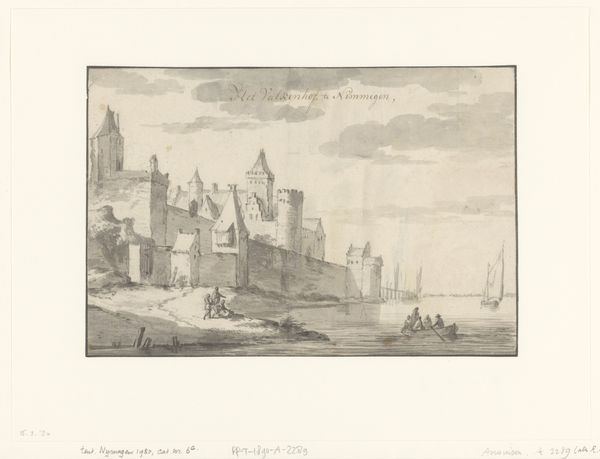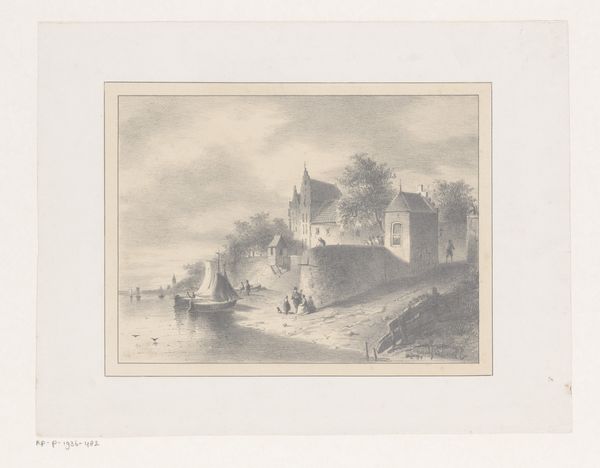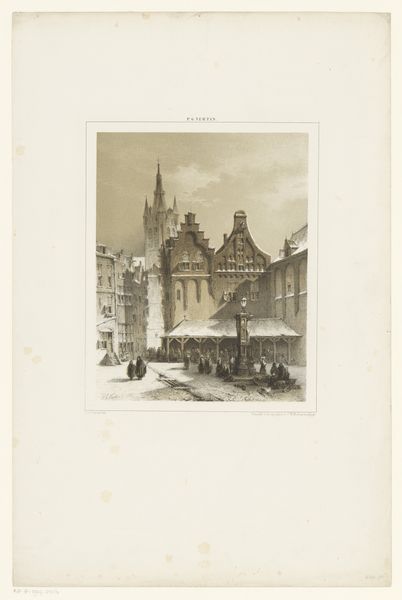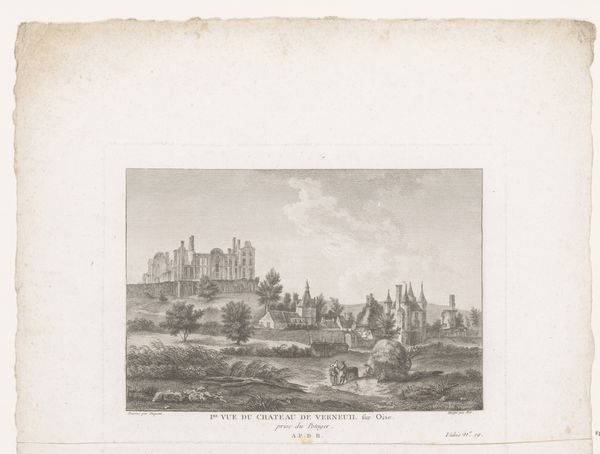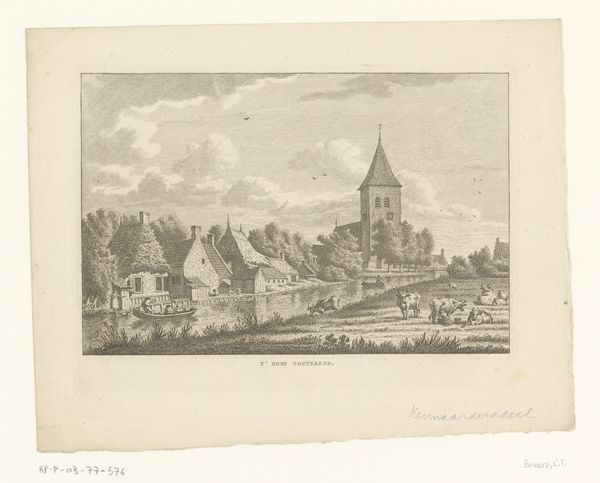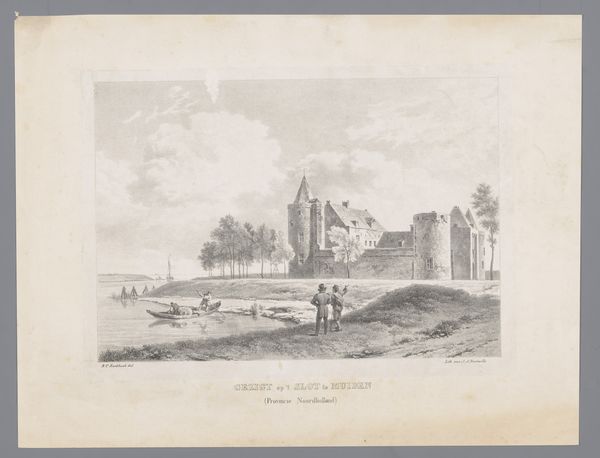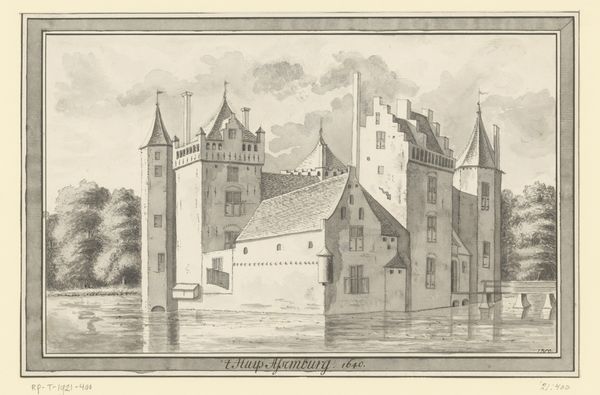
drawing, print, etching
#
drawing
#
dutch-golden-age
# print
#
etching
#
landscape
#
cityscape
#
realism
Dimensions: height 286 mm, width 396 mm
Copyright: Rijks Museum: Open Domain
Johannes Hilverdink created this print of the Waterslootse Poort in Delft, using a technique called lithography. This process involves drawing with a greasy crayon onto a flat stone, treating it with chemicals, and then using ink to create multiple impressions. The resulting image has a distinctive look; the subtle gradations of tone achieved through lithography give it an atmospheric quality, emphasizing the texture of the stone and the artist's hand. Unlike traditional engraving, lithography allowed for a more direct and expressive approach, capturing the nuances of light and shadow with ease. This print also reflects a shift in artistic production: lithography enabled mass production, making art more accessible to a wider audience. It democratized the image, transforming it into a commodity that could be circulated and consumed, mirroring broader changes in labor, politics, and consumption during the 19th century. It is an example of how the means of making deeply influences our experience of an artwork.
Comments
No comments
Be the first to comment and join the conversation on the ultimate creative platform.
